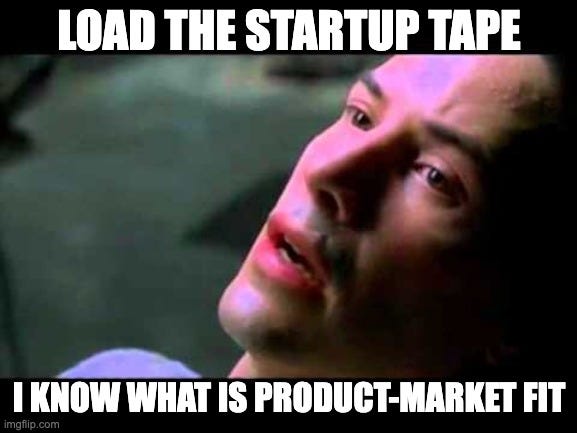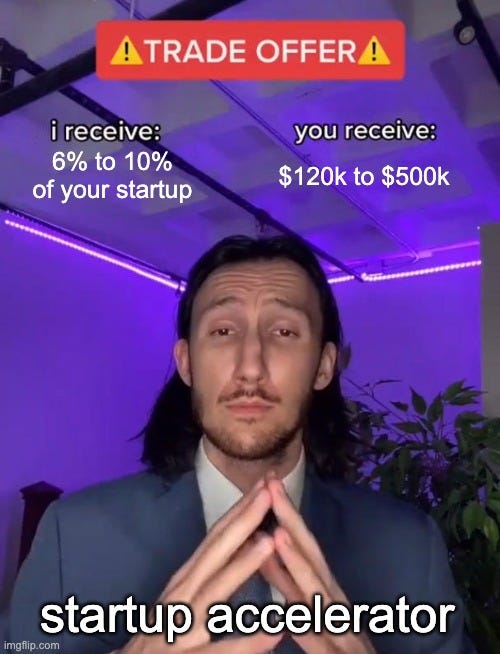Building Codiga: Joining an Accelerator
This is the third post of a series about building Codiga. You can find all the posts on this page.
This post is about the experience of joining a startup accelerator.
What is an accelerator?
An accelerator is a structure that accelerates (no kidding!) the development of your startup in terms of product development, marketing, hiring, etc. Remember Neo that learns everything when he enters the Matrix? That is basically what an accelerator does to a startup founder once they get in: they dump all their knowledge into your brain.
The accelerator gives you some money and tutoring/mentoring in exchange for ownership of your company.
For example, the typical deal in Techstars is 6% for $20,000 and all the mentorship you get during the program. You can get another $100,000 if you give another 2% to 3% ownership. A typical accelerator program lasts 6 to 12 weeks and concludes with a “demo day” where entrepreneurs pitch their startup to investors, begging for funding (hint: you do not have to).
The basic accelerator deal looks like this.
There are a ton of accelerators across the world. The most famous accelerator in the US is YCombinator, followed by Techstars (with their historic “Techstars Boulder” accelerator). Y-Combinator provides you an unmatched exposure to Venture Capital. Techstars gives better support with multiple mentors who follow your progress. For a good overview of both accelerators, you can check out this post from Warmly, a company that went through both accelerators.
Why going into an accelerator?
Joining an accelerator is okay if you need more money to start your business and develop your entrepreneurship experience. An accelerator is like a driving school that ensures you don't crash in the first weeks of your entrepreneurship journey. They also make introductions to potential investors, which increases your odds of raising a financing round. And like the driving school: once you finish a program, all the support is gone, and you are on your own.
On the other hand, in a world where most knowledge is available online, the competitive advantages of an accelerator are diminishing over time. Instead of giving away 6% of ownership for a three months program, you can get all the knowledge by watching Youtube videos or books. Take this for example:
The Y-Combinator youtube channel contains advice from Michael Seibel (co-founder of Twitch) and gives you probably as much information than what a startup program teaches you.
Books like “Venture Deals” explain startup funding and summarizes almost all conversation on the legal aspects of fundraising - and better than any startup program.
The Internet removed barriers to access knowledge. Information that was only available to a small group of people is now available to everyone. Use it at your advantage to learn about startups instead of looking at cute cat pictures.
There are also amazing programs that give you the same knowledge for free. For example, Founder University is a 12-weeks free program and they invest $25,000 into their top graduates.
Is it worth it?
If you are in a team with no experience operating a company, an accelerator will help you start your business and give you legal, hiring, and operating advice. In this case, it may be worth giving away the 6% to 10% equity in your business. If you are an experienced entrepreneur, you already know everything the accelerator will teach you. You can still join the accelerator for the credibility it gives and the connection to potential investors. But it is rarely worth 6% of your company.
Managing directors and accelerator operators have key metrics to hit. They are incentivized to push startups to raise a financing round, and their bonuses depend on such metrics (e.g., number of startups raising a financing round, size of the round, etc.). A managing director may push you to raise a round when you are not ready to do so (and should rather focus on improving the product before raising). It may work against your best interest. Some accelerators have poor mentorship programs, with mentors having limited or no prior startup experience. When a mentor did not operate a startup and had no meaningful exit, how legitimate are they to advise you in your journey?
Remember that the accelerator support is gone as soon as you exit it. I have seen it and I lived it. They will not be here when everything will go south. You may make friends while in the accelerator but do not count on them when you are done.
I went through Techstars Boulder in 2021. It was a good exposure to venture capital and helped me raise my first round. I established nice connections with mentors. But the whole “Give First” mentality is long gone. The day after the program ended, I no longer had any support or conversation with anybody from my program. Multiple times I asked Techstars some help on their platform and my messages were ignored. And during my exit, I had no conversation from Techstars on any kind, besides sending legal paperwork to a generic email address. The advice you get from the community channel is the level of quality you can get on r/startups on Reddit. There is nothing wrong with this, but you need to be aware of this before joining.
Do I regret joining Techstars? Not at all. It was useful for my first run as an entrepreneur. I made connections and learned very quickly how the whole startup ecosystem worked.
A majority of content is not useful. The content is already online in one form or another and ready for you to consume at your own pace. Many mentors are not past founders and need to be more experts in operating startups or building products.
What matters is the small value you can get and the connections you can build. For me; it was about meeting other people in the ecosystem (e.g. I met one great advisor there) and the connection/credibility to investors.
While I think it was a good decision for me (and I would do it again) as a first-time founder, I would not do it again if I were to do a second run. I would rather give equity to people providing way more values (e.g., employees) rather than giving away a significant part of the equity for a small value given over three months.
Oh no, I have been rejected!
Accelerators reject a ton of people. Rejection does not mean your business idea is bad or you will not be successful. Well-known accelerators back a lot of businesses that ultimately fail. And if one accelerator rejects you, another may accept you. Take Sendgrid, a company that was initially rejected by Y-Combinator (calling it a “spam company”) got eventually accepted by TechStars and sold in 2019 for $2B.
Rejection should never put you down. It should be a signal that makes you wonder if you are on the right path. As the Stockdale paradox mentions: you should be sure you will succeed and understand it may take time. If you are not accepted by an accelerator, seek another route: bootstrap, get a co-founder, build yourself, etc. I built on my own for two years before getting accepted by an accelerator.
A startup fails only when the founder gives up.





“A startup fails only when the founder gives up.”
💯 I think nothing is more important than personal conviction with the ability to reflect&adapt on the way